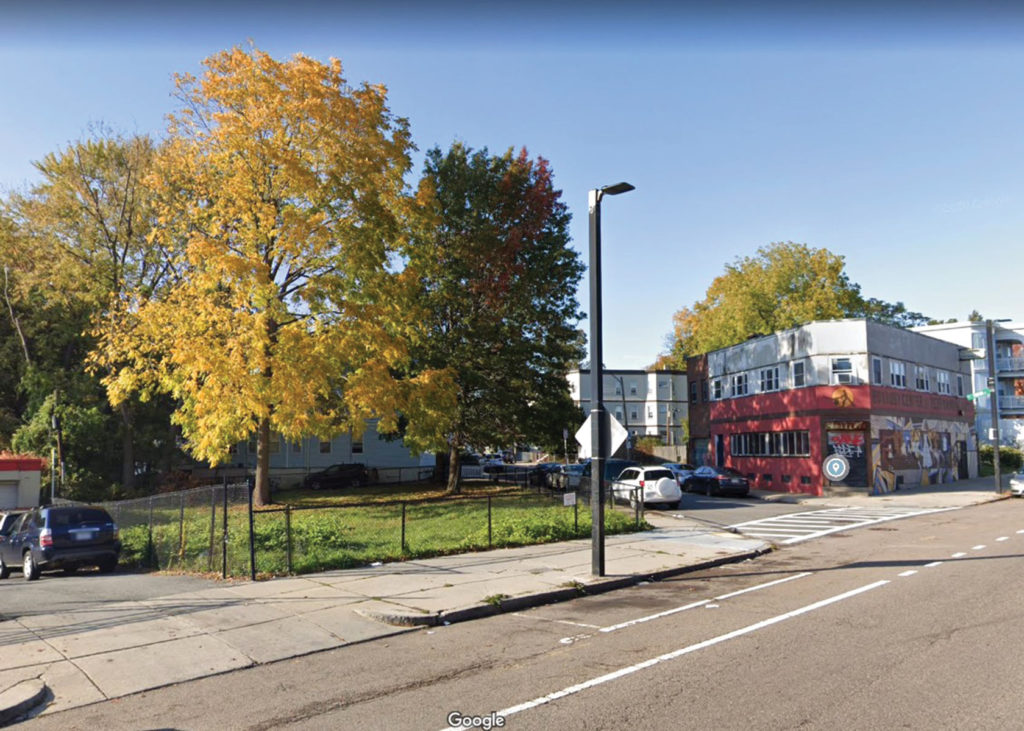
After being named by city officials as the developer for five city-owned parcels along Blue Hill Avenue, DVM Consulting Corp, owned and operated by Mattapan native Dariela Villón-Maga, has secured a crucial loan to move forward with the next phase of planning.
Last week, the Community Development Financial Institutions (CDFI) fund Local Initiatives Support Corporation (LISC) announced it would finance a $750,000 predevelopment loan for DVM’s architectural plans and consultants needed to secure permits and financing for the construction of affordable housing that the firm has promised to bring to the intersection of Blue Hill Avenue and Fabyan Street in Mattapan.
“I have the skills, I have the relationships — both within the financial sector and within the community — but I don’t come from wealth, so there was just a real concern about how I would secure financing to make this happen,” Villón-Maga said.
In December 2021 Villón-Maga and DVM were designated by the Public Facilities Department (PFD) and the Department of Neighborhood Development (DND) as part of the city’s Blue Hill Avenue Action Plan. The action plan looks to develop a total of 30 parcels along Blue Hill Avenue, and hopes to “spark economic development, create business opportunities and foster entrepreneurship.” Many of the parcels included in the plan have stood vacant for decades — something Villón-Maga is excited to change.
“I was really itching to use [my skills] in my community and give back. So this felt like the right way to do it,” she said.
Three additional parcels were also designated to Habitat for Humanity last December and a request for proposals is still out for the other parcels.
On the five parcels designated to DVM, Villón-Maga says she is looking to build three buildings consisting of 30 units of affordable homes and a commercial space in each building. Of the 30 homes, 18 are to be homeownership units and 12 to be rental units. Villón-Maga hopes to sell or lease two of the commercial spaces to local businesses while maintaining ownership of the third in order to include an artist “makerspace.”
She said it’s unclear what exactly that space will look like, but that artistry has always felt like something, “that we wanted to bring to the lower Blue Hill corridor.”
The location of the development has special sentimental value for Villón-Maga who grew up in the neighborhood. As a child in Grove Hall, she experienced homelessness and lived in various affordable housing units throughout her formative years.
“I’ve been able to be successful because of affordable housing, and coming from a family that’s low income … it’s hard to get to where I’m at right now — a lot of people I know and I grew up with haven’t made it this far. So I attribute that a lot to affordable housing.”
She boasts over ten years of affordable housing development experience, having begun work with Housing Opportunities Unlimited (HOU), a relocation and support service for residents in affordable housing back in 2011. From there Villón-Maga has worked with a handful of non-profits developing affordable housing in Boston and the region. The Blue Hill Avenue project will be her first solo venture.
“Dariela is part of a vanguard of emerging developers of color who are stepping up to transform sites in the communities they live in and grew up in,” LISC Boston Executive Director Karen E. Kelleher said in a statement. “The city is creating opportunities for a new generation of developers of color to shape the future of their neighborhoods and change the face of real estate development in Boston. LISC sees its role as working to extend the real estate ecosystem to support their success and to build.”
As part of the development process up to this point, DVM has heard continued feedback from community members, namely through Fatima Ali-Salaam, chairwoman of the Greater Mattapan Neighborhood Council.
Ali-Salaam and the council have pushed for things like an increase in the number of homeownership units included in DVM’s plan, and has endorsed Villón-Maga’s vision for the project.
“She lives in Mattapan. It matters if this is your community, because we’ve seen a lot of times that we get developers who don’t even live in the city of Boston,” Ali-Salaam said. “You are responsible to your community.”
Villón-Maga said she views the opportunity as a turning point for local development, especially for smaller developers who have not traditionally been prioritized by the city.
“I can’t tell you how important it’s been to have LISC in our corner, being able to be flexible, thinking differently about predevelopment financing. I’m not sure if we would have had what we needed to bring this project across the finish line if it weren’t for LISC taking a chance on us,” she said. “This is the way that real change can happen.”






